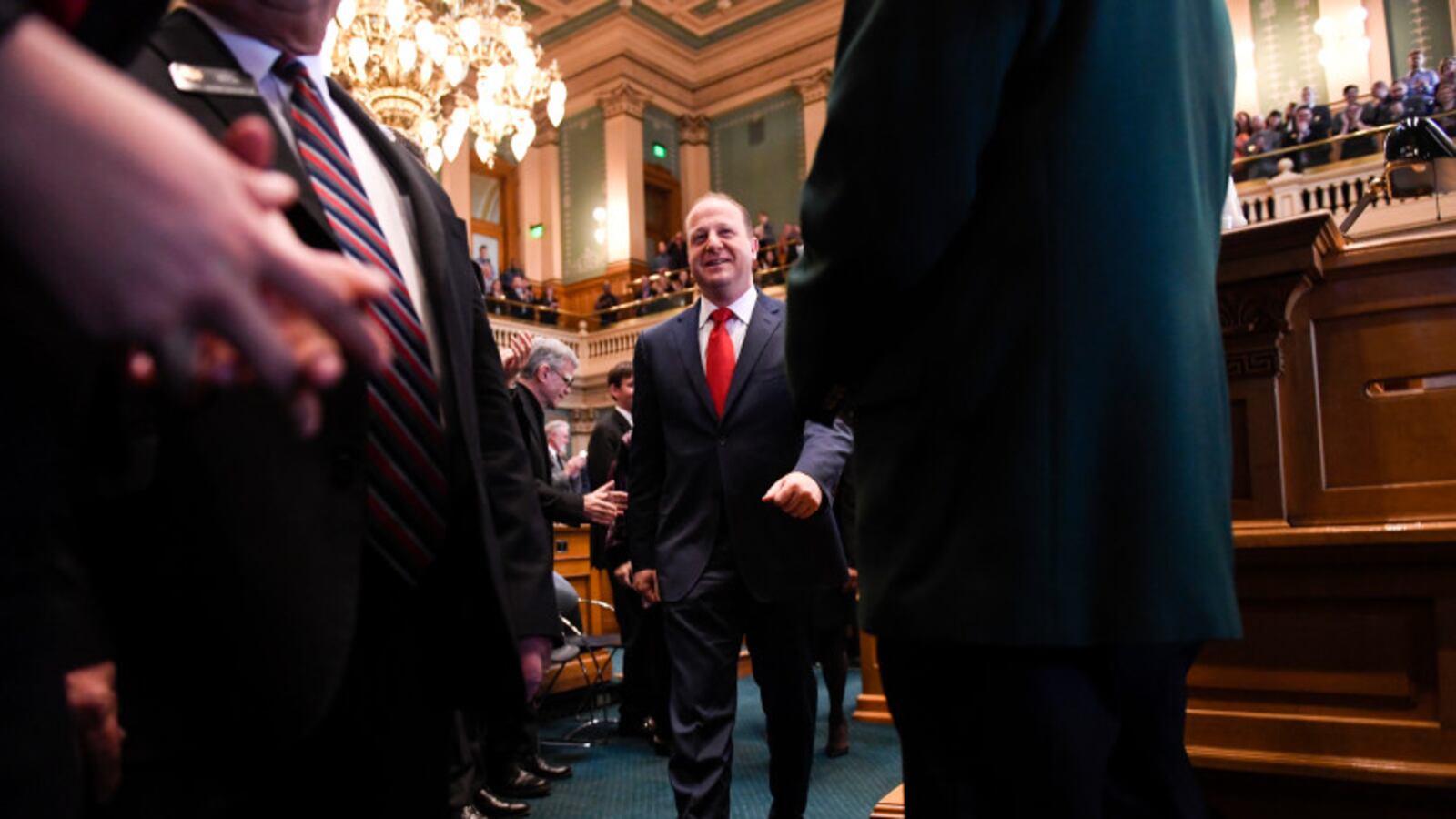Funding full-day kindergarten will give more Colorado kids a good start in life, put money back in the pockets of working families, and let school districts put resources into other areas, Gov. Jared Polis said in his first State of the State address.
“Making full-day kindergarten available and accessible for all children sets kids up to be more successful in school and throughout their lives — saves parents money and improves performance, narrows achievement gaps, leads to earlier identification and intervention for those with special needs, and leads to increasing high school graduation rates down the road,” Polis said.
“And all of us will share in those benefits. It will save taxpayer money in the long run by increasing incomes and decreasing the achievement gap. It will strengthen families, our communities, and our economy.”
Funding kindergarten was a centerpiece of Polis’ campaign for governor, and in his speech, he called it a “top priority” and said he wants to see it a reality by fall 2019. Polis made it the first policy issue in an address that included promises to make health care more affordable, respond better to the opioid epidemic, expand the use of renewable energy, improve the economy, particularly in rural parts of the state, and carry out a major tax reform.
On education, Polis also promised to address a growing teacher shortage and lent his support to a bill that would expand a loan forgiveness program for teachers. He said he would work to raise high school graduation rates and provide more mental health resources to schools.
Polis is Colorado’s first openly gay governor and its first Jewish one. He previously served on the State Board of Education before heading to Congress, and he also founded two charter schools for at-risk youth, the New America School and the Academy of Urban Learning.
Polis comes into office with Democratic majorities in both chambers of the state legislature who have ambitious agendas of their own. He nonetheless opened his speech with a promise to work in a bipartisan fashion.
“What truly matters is not the letter next to your name or your party, or which side of the aisle we sit on. What matters is: Will our ideas and your ideas be good for Colorado?” he said. “That is the yardstick by which we will measure the legislation you pass, regardless of party.”
Some lawmakers of both parties have questioned whether full-day kindergarten is the best use of more than $200 million in scarce dollars. The majority of school districts in Colorado already offer full-day kindergarten. The state reimburses districts a little more than half the amount per student that it pays for higher grades, and districts either make up the difference or charge parents tuition.
These skeptics have argued that it might be better to simply send more money to school districts and let them set their own priorities, to put that money into special education, or to use it to expand preschool. In 10 years, Colorado has withheld more than $7 billion that would have otherwise gone to schools under constitutional requirements, even as K-12 education has taken up a growing share of the state budget, forcing hard trade-offs.
State Rep. Bob Rankin of Carbondale, a Republican member of the influential Joint Budget Committee, said he understands the governor’s commitment, and a strong economy means the state has a lot more money to spend for the 2019-20 fiscal year. However, much of that money is already spoken for in other budget requests.
“We’re looking very hard to find the money,” he said, adding that one answer may be to phase in full-day kindergarten, starting with districts that already offer it.
When Polis noted in his speech that Oklahoma funds full-day kindergarten, state Sen. Rachel Zenzinger, an Arvada Democrat who also serves on the budget committee, tweeted that Oklahoma doesn’t have the same restrictions Colorado does on raising taxes or allowing the state budget to grow with new revenue.
House Majority Leader Alec Garnett, a Denver Democrat, said the March economic forecast will tell lawmakers how kindergarten fits into the broader budget picture.
In his address, Polis said full-day kindergarten is too important to leave to a patchwork of local policies. Those remarks drew two standing ovations, with state Rep. Jim Wilson of Salida, a Republican supporter of full-day kindergarten, joining Democrats.
Polis cast free full-day kindergarten as a crucial first step in expanding educational opportunity and reaching free, full-day preschool, his even more ambitious goal.
“Kindergarten in Colorado is a picture of inequality, where some students attend free full-day kindergarten, some must pay tuition, and other families don’t get it free and can’t afford it because of the cost,” he said. “In Colorado, families can pay upwards of $500 per month to enroll their kids in full-day kindergarten. That’s money that instead could go toward a good home, health care, a college fund, retirement savings, starting a small business, or maybe even a nice vacation for their family once in a while.”
At the same time, he said full-day kindergarten would be not be a mandate on either parents or school districts. Asked after the speech how that squared with ensuring all children have access, Polis said he was confident that districts would respond to available money.
“When something is funded, districts do it,” he said.
Read the full speech here.

